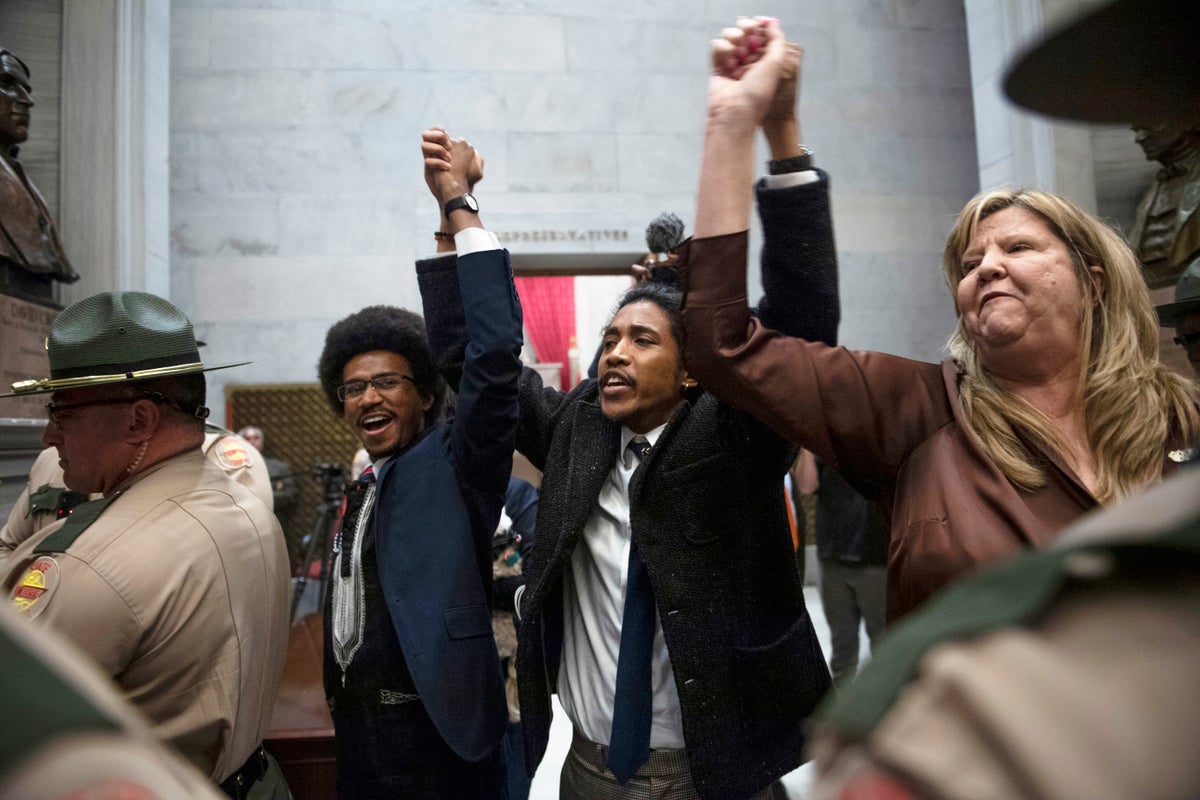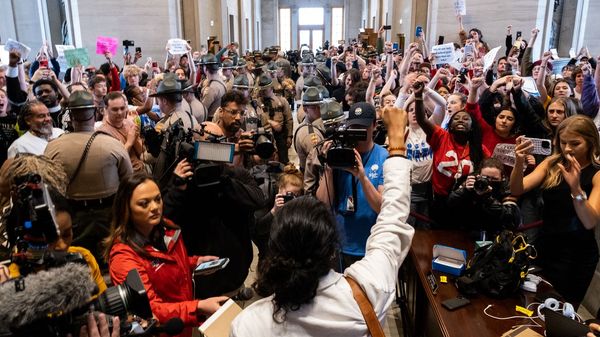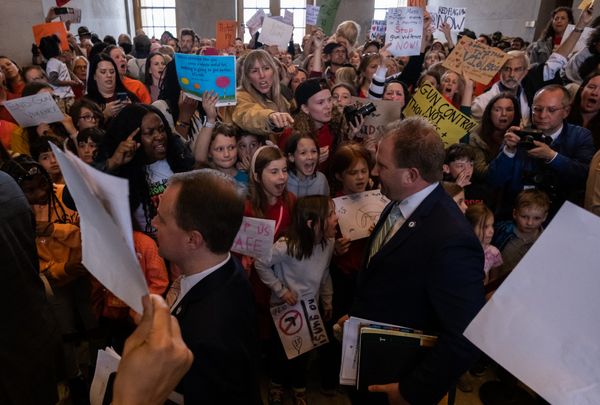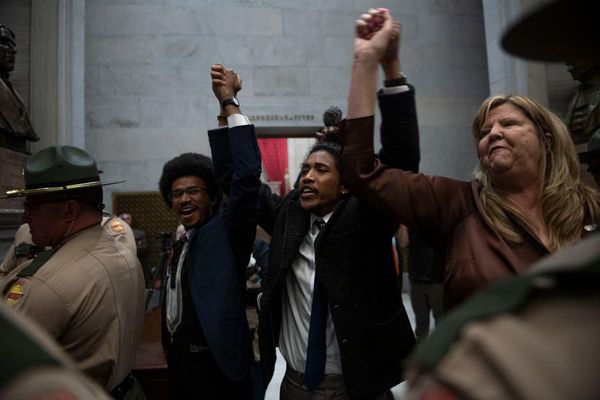
Oklahoma Republicans removed the state's only nonbinary legislator from House committees after the lawmaker provided refuge to a transgender rights activist. In Florida, two Democratic leaders were arrested for participating in a protest over abortion restrictions. And in Tennessee, three Democratic House members are facing expulsion for using a bullhorn in the House chamber to show support for demonstrators demanding gun control.
In an increasingly polarized political atmosphere, experts say these kinds of harsh punishments for minority party members standing up for principles they believe in will likely become more common, especially when acts of civil disobedience clash with the rigid policies and procedures of legislative decorum.
Measures of party polarization suggest the modern-day division between Democrats and Republicans is at its highest level since immediately after the Civil War, said Scot Schraufnagel, a political science professor at Northern Illinois University who has studied and written about political incivility.
“I used to teach students that it’s not as bad as it once was," Schraufnagel said. "It’s as bad or worse than it’s ever been, with the caveat that we don’t have data from pre-Civil War era.”
While many Republican leaders are loudly complaining about the arrest of former President Donald Trump on 34 felony criminal charges, it’s members of the Democratic minority in GOP-led states who have been facing a crackdown for their political actions.
“Over the last few years, I feel like the extremism has increased and the polarization has gotten worse,” said Oklahoma House Minority Leader Rep. Cyndi Munson, whose Democratic colleague Rep. Mauree Turner was formally censured by the GOP-controlled House after a transgender rights protester involved in a scuffle with Capitol police sought refuge in Turner's office.
“Obviously we're seeing this in Oklahoma ... this desire (for Republicans) to use their power to silence anyone who doesn't think like them. They seem to want to shut out and silence people who don't think exactly like they do.”
Turner, one of the few Black legislators in the Legislature and the first openly nonbinary and Muslim person elected to state office in Oklahoma, was told they could be restored to their committees if they apologized to the House and to the Capitol patrol. Turner said that won't happen.
“I can't apologize for loving the people of Oklahoma enough to fight for their rights,” Turner said this week.
In Tennessee, Republicans will vote Thursday on whether to kick Democratic Reps. Gloria Johnson, Justin Jones and Justin Pearson out of their offices for taking to the front of the House and chanting back and forth with gun control supporters who packed the gallery days after The Covenant School shooting in Nashville that killed six people, including three children. Expulsions in the Tennessee General Assembly are extremely rare and typically center on criminal activity.
As scrutiny over the expulsion effort increased, White House Press Secretary Karine Jean-Pierre on Tuesday criticized Republican lawmakers’ focus on rebuking Democrats for protesting rather than addressing solutions to avoid another school shooting.
“What did the Republican legislators do? They’re trying to expel these three Democratic legislators who joined in the protest,” Jean-Pierre said, adding that GOP members are “shrugging in the face of yet another tragic school shooting while our kids continue to pay the price.”
In Florida, Senate Democratic Leader Lauren Book is not expected to face any legislative discipline after she and Democratic Party Chairwoman Nikki Fried were arrested and charged with trespassing for refusing to leave a protest in Tallahassee against a bill to ban abortions after six weeks.
Fried, who was Florida's agriculture commissioner and the only statewide elected Democrat before losing a campaign for governor last year, just took over a party that is at its lowest point in state history. Book said she realizes the Republican supermajority in the Legislature can pass whatever it wants regardless of what Democrats do.
“It’s my charge to lead a group of 11 other Democrats … and to get them excited every single day to fight a battle that a lot of times we know we’re going to lose," Book said.
Schraufnagel, the professor, said much of the incivility is a result of a political-agenda shift toward hot-button topics like abortion, gun restrictions and transgender rights.
“What’s happened is that politicians have used social issues to try to drive wedges into the voting base of their opponents,” Schraufnagel said. “When we have intense polarization, which is the current era, and you add incivility to the mix, we're getting hyper-conflict that is not conducive to effective governance."










